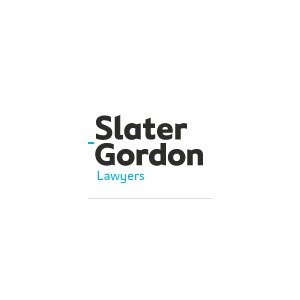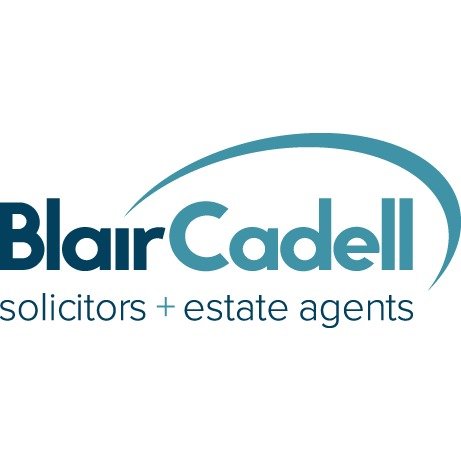Best Probate Lawyers in Edinburgh
Share your needs with us, get contacted by law firms.
Free. Takes 2 min.
List of the best lawyers in Edinburgh, United Kingdom
About Probate Law in Edinburgh, United Kingdom
Probate in Edinburgh, United Kingdom, refers to the legal process of administering the estate of a deceased person. This includes proving in court that a deceased person's will is valid (if there is a will), identifying and inventorying the deceased's property, appraising the property, paying debts and taxes, and distributing the remaining property as the will or law directs. In Scotland, the process is known as "confirmation" rather than "probate." The Edinburgh Sheriff Court typically handles this process, ensuring that the estate is correctly managed and distributed according to the deceased person's wishes or, in the absence of a will, in accordance with the rules of intestacy.
Why You May Need a Lawyer
There are several reasons why you might need a lawyer for probate-related matters in Edinburgh. Here are some common situations that necessitate legal assistance:
- If the deceased has not left a will, navigating the rules of intestacy can be complex.
- When dealing with a will that may be contested by family members or other parties.
- If the estate includes complex assets such as businesses, international assets, or significant debts.
- You suspect that the executor or personal representative may be mishandling the estate.
- Tax matters are involved, especially if the estate is sizeable and may incur inheritance tax.
- As an executor, you need advice on your responsibilities and potential liabilities.
Local Laws Overview
The probate process in Edinburgh is governed by the Scottish legal system, which differs from English law. Some key aspects include:
- Confirmation: This is the process through which an executor is given authority by the court to manage and distribute the deceased’s estate. An application for confirmation must be made to the Sheriff Court.
- Executors: These are individuals named in the will or appointed by the court to administer the estate. They are responsible for managing the estate through the confirmation process.
- Inheritance Tax: Estates over a certain threshold may be subject to inheritance tax. Executors are responsible for ensuring these taxes are paid.
- Intestate Succession: If no will exists, the estate will be distributed according to the rules set by the Succession (Scotland) Act 1964.
- Simplified Procedures: Small estates may be subject to a simpler, expedited process for gaining confirmation.
Frequently Asked Questions
What is the role of an executor?
The executor is responsible for administering the deceased's estate, ensuring that assets are collected, liabilities are paid, and the distribution of the estate is carried out according to the will or the laws of intestacy.
How long does the probate process take in Edinburgh?
The duration of the probate process can vary considerably depending on the complexity of the estate. Simpler estates might take around six months, while more complicated ones could take over a year.
What happens if I cannot locate the will?
If the will cannot be found, the estate may need to be managed as if the deceased died intestate, which means distribution will follow the laws of intestacy.
Do all estates go through probate?
No, not all estates are subject to probate. Smaller estates, below a certain value, may not require a full probate process.
Can probate be challenged?
Yes, if there are disagreements over the validity of the will or the management of the estate, probate can be contested.
What happens if there is no will?
If no will is present, the estate will be distributed according to the intestacy rules set forth by Scottish law.
Is an affidavit required for confirmation?
Yes, an affidavit of the executor may be required to confirm the deceased's estate details to the court.
What documents are needed for probate?
The key documents include the original will (if available), the death certificate, and an inventory of the estate’s assets, debts, and any relevant financial statements.
How are disputes resolved during probate?
Disputes can be resolved through negotiation, mediation, or, if necessary, litigation in the Sheriff Court.
Can I act as an executor if I live outside Scotland?
Yes, but it may be more challenging to manage, and having a local solicitor can help navigate the process effectively.
Additional Resources
Here are some useful resources and organizations for anyone dealing with probate matters in Edinburgh:
- Scottish Courts and Tribunals Service: Offers detailed guidance on the confirmation process and court forms.
- HM Revenue and Customs (HMRC): Provides information related to inheritance tax and necessary payments.
- Law Society of Scotland: Can help locate solicitors specialized in probate law.
- Citizens Advice Scotland: Offers free advice on various legal and financial issues, including probate.
- National Records of Scotland: Useful for obtaining necessary certificates and records for probate.
Next Steps
If you require legal assistance with probate matters, consider the following steps:
- Gather all relevant documents, such as the will, death certificate, and an inventory of assets and debts.
- Identify any immediate legal or financial obligations, like taxes or debts due.
- Contact a qualified solicitor who specializes in probate law in Edinburgh. The Law Society of Scotland is a good starting point for finding legal representation.
- Prepare to discuss your specific needs and any concerns you have about the estate or the probate process.
- Follow the advice given by your solicitor to ensure the estate is managed properly and efficiently.
Lawzana helps you find the best lawyers and law firms in Edinburgh through a curated and pre-screened list of qualified legal professionals. Our platform offers rankings and detailed profiles of attorneys and law firms, allowing you to compare based on practice areas, including Probate, experience, and client feedback.
Each profile includes a description of the firm's areas of practice, client reviews, team members and partners, year of establishment, spoken languages, office locations, contact information, social media presence, and any published articles or resources. Most firms on our platform speak English and are experienced in both local and international legal matters.
Get a quote from top-rated law firms in Edinburgh, United Kingdom — quickly, securely, and without unnecessary hassle.
Disclaimer:
The information provided on this page is for general informational purposes only and does not constitute legal advice. While we strive to ensure the accuracy and relevance of the content, legal information may change over time, and interpretations of the law can vary. You should always consult with a qualified legal professional for advice specific to your situation.
We disclaim all liability for actions taken or not taken based on the content of this page. If you believe any information is incorrect or outdated, please contact us, and we will review and update it where appropriate.









